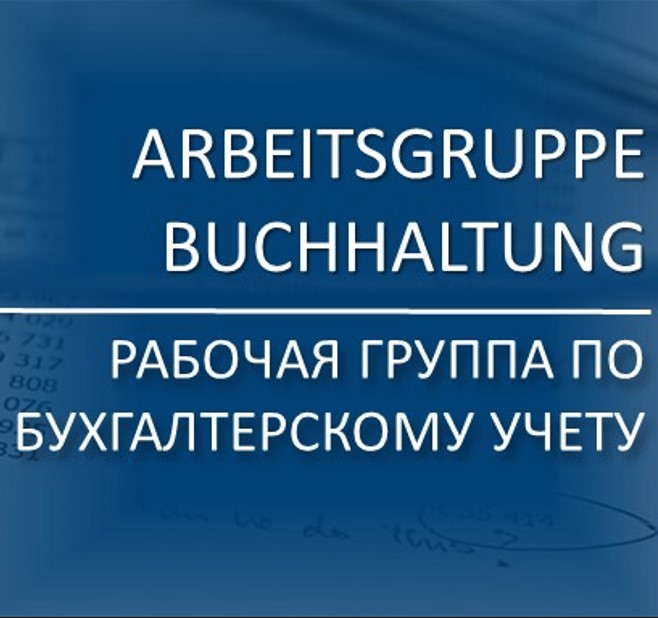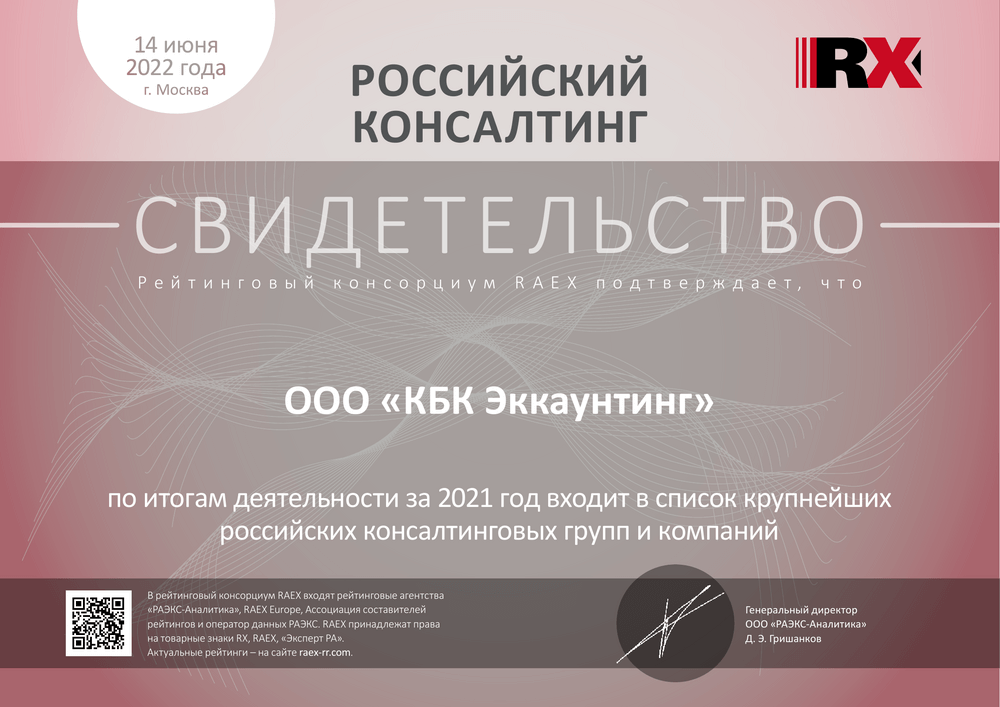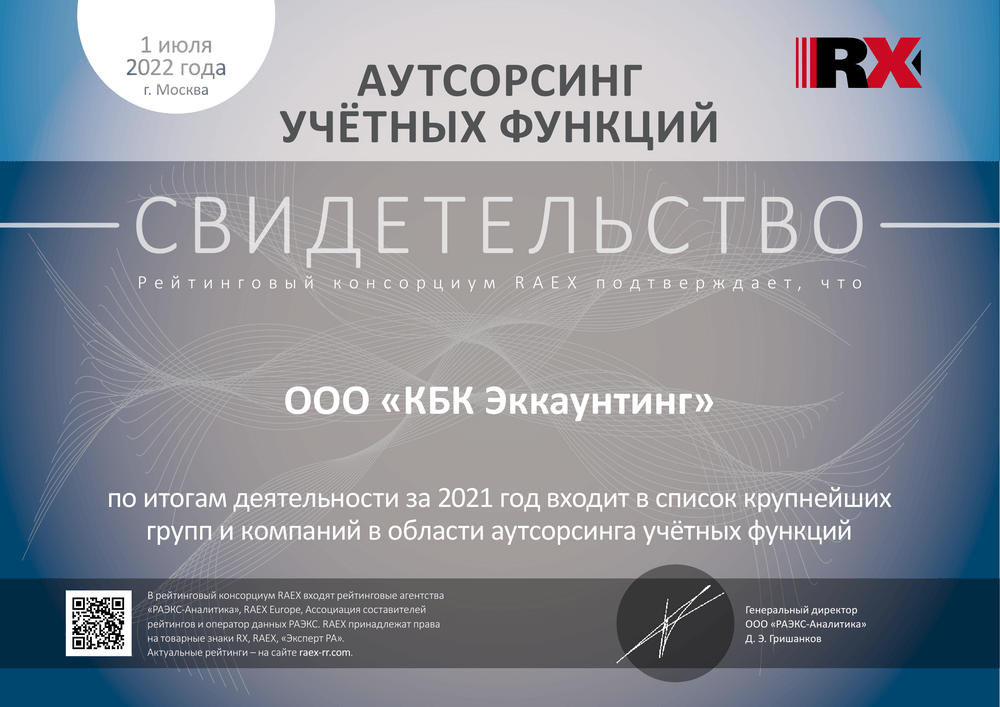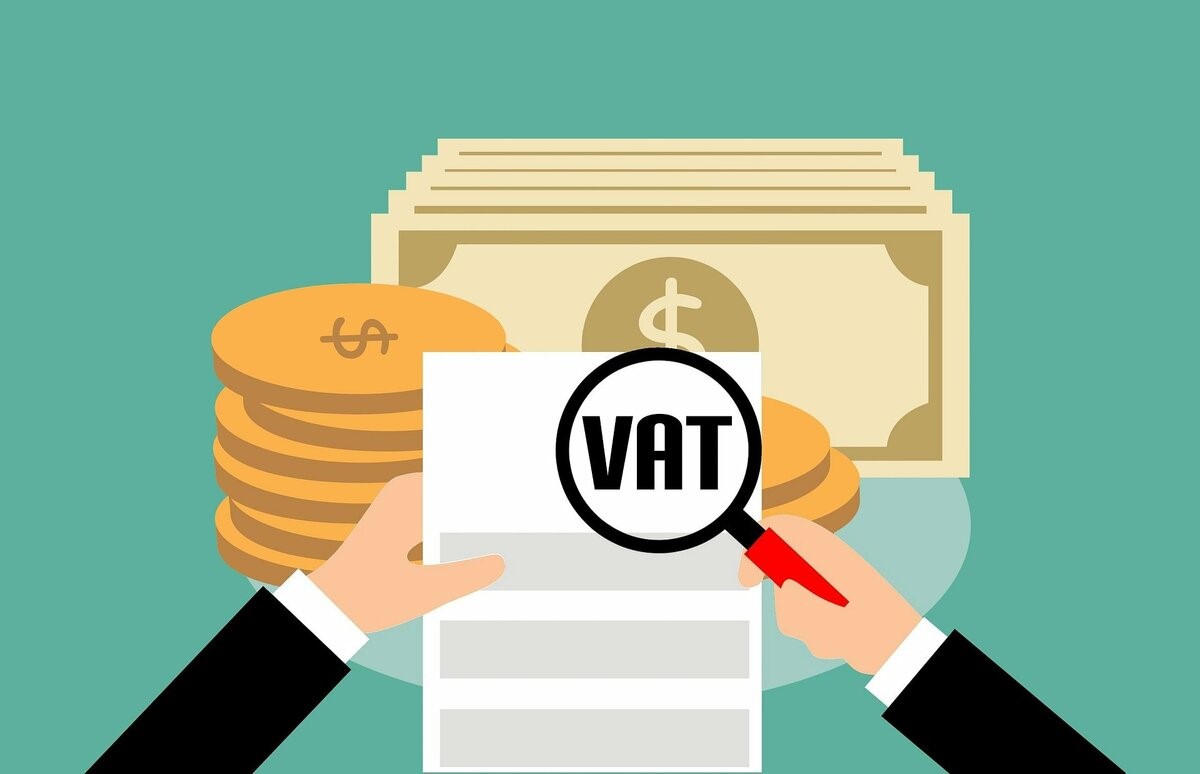Accounting outsourcing is the transfer of in-house accounting functions to outside specialists. The accounting outsourcing market in Russia is still at an early stage of development. According to the latest analysts’ data, only about 15-20% of companies in Russia use outsourced accounting (compared to 80-90% in Europe and the USA).
In many cases, companies do not fully understand all the benefits of accounting outsourcing, looking at outsourcing only in terms of costs, or believing that outsourcing is not suitable for them for whatever reason. We will try to tell you what the benefits of outsourcing are and for which companies it may be suitable the most.
Advantages of accounting outsourcing
1. Focusing on core objectives and business processes
The main advantage of accounting outsourcing, in our opinion, is the opportunity to gain a competitive advantage, moving the non-core functions out of the company and focusing entirely on the business. Accounting outsourcing allows you to spend more time developing your business, leaving the “paperwork” to us. You don’t need to be distracted by bookkeeping, submitting reports, controlling compliance with different legal requirements – all that is taken care of by KBK Accounting.
2. Reduction of non-core expenses
The second most important benefit of accounting outsourcing is the opportunity to reduce costs. When you outsource the bookkeeping, you avoid additional costs of maintaining an in-house accounting department, such as
- Renting a larger office;
- Accountants’ salaries and social contributions;
- Purchase of specialised software and database accesses;
- IT services related to maintaining and updating the necessary software;
- HR services related to recruitment and hiring.
In addition, you will not encounter a leave of absence for your accountant, KBK Accounting is always available to you.
3. Reducing the financial risks associated with accounting errors
Choosing a qualified accountant in Russia, especially one who speaks foreign languages, is always a long and complicated process. Moreover, sometimes it is very difficult to assess his professionalism during initial interviews. By choosing KBK Accounting for accounting outsourcing in Russia, you are insured against such risks, as our specialists have already passed the necessary screening.
For your convenience, in addition to Russian we also work in German and English.
4. Contacts with public authorities
Our accountants have years of experience in dealing with various public authorities (Tax Service, Pension Fund, Social Security Fund etc.).
We will take part in all audits. We take upon ourselves the preparation of all documents required for an audit, minimising the cost of your time.
The benefits listed above apply to absolutely all companies, but at the same time accounting outsourcing is most suitable for certain types of business.
Who is suitable for accounting outsourcing?
Startups. Launching a new business in Russia is a rather costly undertaking, requiring a complete focus on business development from the owners. Accounting outsourcing allows you to concentrate on the core processes and at the same time to be sure of the quality of accounting, which is also particularly important in Russia, where there are no accounting simplifications for companies just starting out.
Foreign business. As we noted above, overseas accounting outsourcing is a ubiquitous long-standing practice, and businesses understand its benefits. This is the main reason why, when entering a new market in Russia, foreign companies are more willing to outsource bookkeeping, since they understand perfectly well that it is easier to entrust bookkeeping, tax and payroll calculations to professionals than to immerse themselves in the subtleties of Russian legislation, accounting and the specifics of business processes.
Small and medium-sized enterprises. For these companies, the opportunity to optimise non-core expenses is particularly important. Accounting outsourcing will allow not to keep a staff of accounting department without any loss in quality and control of business processes.
Holdings. Despite the size which implies having an in-house accounting department, large and complex businesses also often resort to accounting outsourcing, but for such companies it is most relevant to outsource certain areas of the accounting. As a rule, these are the most routine and labour-intensive, such as HR and payroll.
Micro-enterprises and individual entrepreneurs. For businesses of this size, accounting outsourcing is the most appropriate solution, as they cannot afford to have an in-house accountant. Often, they resort to the services of a third-party solo accountant, but such accountants tend to service dozens of similar companies, which of course affects quality accordingly. Outsourcing the bookkeeping to an outsourced company is in this case optimal.
Companies that have specific activities. These or other companies have activities which require specific knowledge of the certain areas of accounting and legislation. In outsourcing companies, there are always specialists with experience in supporting specific firms.
Seasonal business. It is not profitable for companies operating in the season to maintain accounting during a downturn in activity. Therefore, companies in the agro-industrial complex, some food production, hotel business outsourcing of accounting services is in demand.
At the same time there are a small number of situations where accounting outsourcing is ineffective and even contraindicated:
1. Willingness to do bookkeeping with irregularities. We don’t work with clients running a non-“white” non-compliant business.
2. Management’s tendency to micromanage. Accounting outsourcing is not suitable for the companies where management is used to controlling all processes, giving orders personally and having direct contact with accountants. Accounting outsourcing in today’s world is the services of high-tech accounting companies. KBK Accounting has almost 10 years’ experience in accounting outsourcing in Russia, and our range of services includes all areas of bookkeeping, tax, and management accounting, which are incredibly difficult for an individual business to replicate with the same quality by an in-house accounting department, both in terms of time and cost. That is why it makes sense to maintain only those competencies that are key and determine its competitiveness, while we will do our best to ensure that your business takes full advantage of accounting outsourcing in Russia.


















